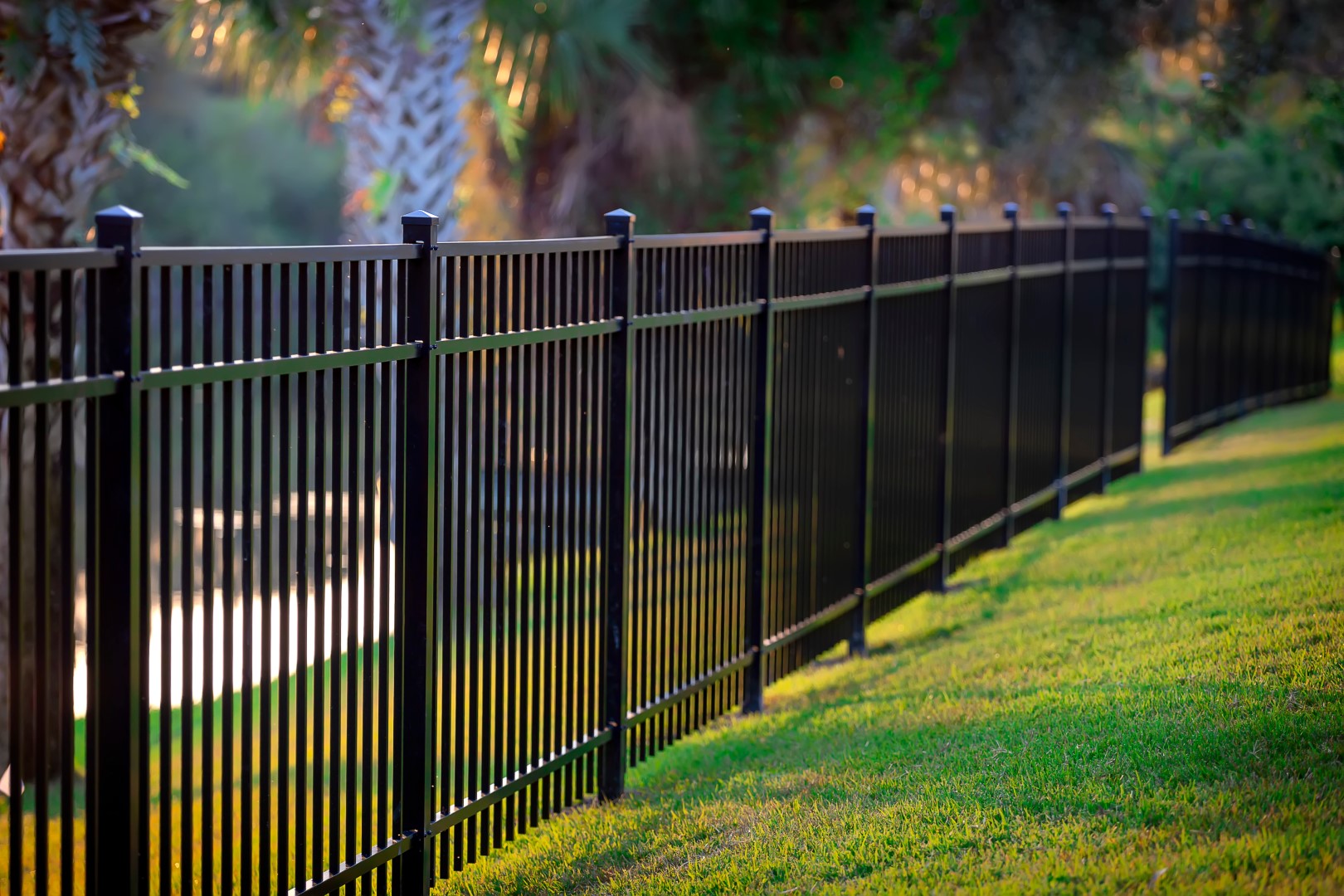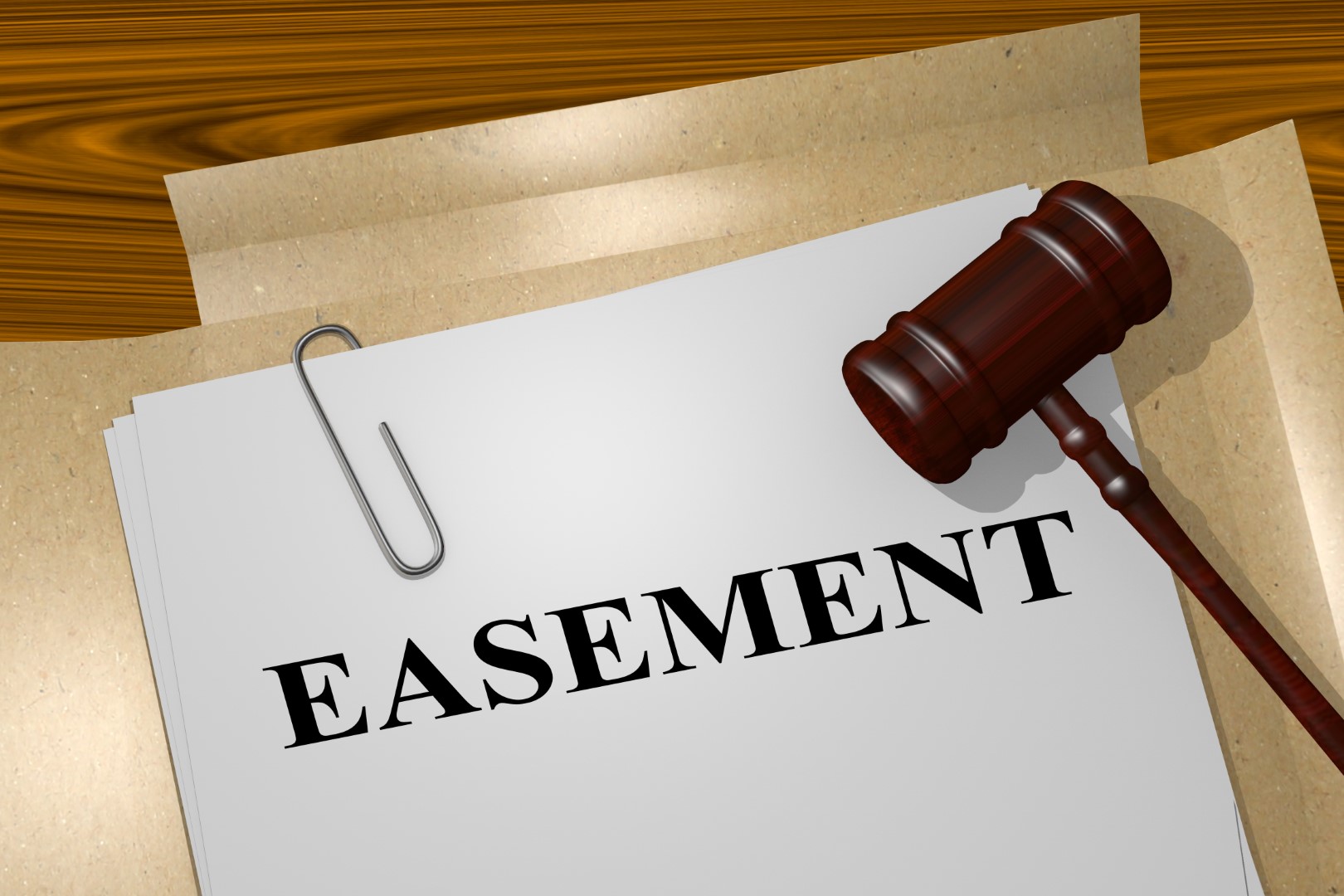September 15th 2021
Neighbourly disputes concerning boundaries are regrettable, and, in most instances, avoidable. This article will consider fence disputes, easements, and down-spout drainage with the hope that providing some basic information on these issues can help you avoid conflict of your own. Ultimately, if you find yourself in a situation covered by this article, legal advice particular to your situation is recommended.
The first kind of issue to consider relates to fences. This issue has been prevalent in news media, with one recent example of a family in Brampton being sued for half the cost of a fence the neighbour constructed on his own.  While there exist municipal by-laws restricting the height and kinds of fences that can be constructed, if no fence exists, there is no common law or legislated obligation to construct a fence. This means that litigation in the example above seems frivolous. The general rule is that if you want a fence where none exists, you must bear the costs yourself if your neighbour is unwilling or unable to contribute. Fences are historically necessary, given that trespass includes the trespass of animals, so landowners have had reason to construct and maintain fences to limit their liability. This includes animals who escape the property and damage neighbouring lands or cause accidents on roads. If a fence exists but is unsuitable to the parties needs or has become rundown, the Line Fences Act provides default rules for adjudicating the issue, although municipal by-laws may have a separate process for neighbourly disputes regarding fence replacement or maintenance along a boundary. Keep in mind the Line Fences Act does not address whether a fence was correctly placed along a boundary line. A survey and historical evidence can usually help parties resolve the matter. However, a dispute about the boundary itself may be pursued under the Boundaries Act.
While there exist municipal by-laws restricting the height and kinds of fences that can be constructed, if no fence exists, there is no common law or legislated obligation to construct a fence. This means that litigation in the example above seems frivolous. The general rule is that if you want a fence where none exists, you must bear the costs yourself if your neighbour is unwilling or unable to contribute. Fences are historically necessary, given that trespass includes the trespass of animals, so landowners have had reason to construct and maintain fences to limit their liability. This includes animals who escape the property and damage neighbouring lands or cause accidents on roads. If a fence exists but is unsuitable to the parties needs or has become rundown, the Line Fences Act provides default rules for adjudicating the issue, although municipal by-laws may have a separate process for neighbourly disputes regarding fence replacement or maintenance along a boundary. Keep in mind the Line Fences Act does not address whether a fence was correctly placed along a boundary line. A survey and historical evidence can usually help parties resolve the matter. However, a dispute about the boundary itself may be pursued under the Boundaries Act.
Ultimately if a fence must be constructed, consulting with a neighbour prior to any such construction is advisable, considering that consent for trespass for the purpose of fence construction will be required. In addition, if a neighbour constructs a fence that you do not like, especially for the purpose of containing animals and after having been given the opportunity to split the cost on a more esthetically pleasing fence, it may not be open for you to challenge its existence. Consider the recent case of an Aurora man who was jailed for 21 days following a lengthy fence dispute. He simply did not understand or accept the rights of his neighbour and went to culpable lengths to vilify her in her community. Failure to understand or appreciate the rights of your neighbours is equally important, which brings us to the next topic of easements, as this issue can pose many unique issues for landowners.
 Easements often arise in the context of shared driveways and alleyways, although there are numerous examples of easements that limit or empower a property owner beyond these examples. Generally, an easement is the right to use and or enter onto the legal property of another without rights of possession. Every easement is specific to the context, so the language and historical basis for the easement must be considered in each situation. Where the easement exists along the boundary line for the purpose of accessing a back garage, it is likely that you and your neighbour were intended to have free and clear access to that portion of the driv
Easements often arise in the context of shared driveways and alleyways, although there are numerous examples of easements that limit or empower a property owner beyond these examples. Generally, an easement is the right to use and or enter onto the legal property of another without rights of possession. Every easement is specific to the context, so the language and historical basis for the easement must be considered in each situation. Where the easement exists along the boundary line for the purpose of accessing a back garage, it is likely that you and your neighbour were intended to have free and clear access to that portion of the driv
eway to access the rear of your properties. This would mean there can be no parking on the shared portion of such land, as this restriction to the ingress and egress across the easement would be in violation of the easement agreement. It is important to state that easements may not always be perfectly tailored to the evolving use of a neighbour’s land (or accommodating to their brand-new truck). Regardless, the purpose of the easement may endure, so having proper advice before becoming disagreeable might allow you to reach an appropriate resolution with a neighbour.
When it comes to rainfall, it is important to consider how the flow of water from your home might impact a neighbour’s right to the reasonable use and enjoyment of their property. Consider the case of Saelman v. Hill, 2004 CanLII 9176 (ON SC), where a disagreeable neighbour thought it would be a good idea to keep their downspouts directed towards their neighbour’s driveway rather than have the water flow naturally down the gradient of their own land. They refused to change its direction despite repeated requests and took further actions of harassment and intimidation towards their neighbour that limited their use and enjoyment of their property. This poor decision-making cost them nearly $25,000 in damages (and resulted in several other court injunctions on their  behaviour). Deliberate and malicious acts that tend to concentrate the flow of water towards a neighbour in ways that impede the reasonable use and enjoyment of property can lead to claims in nuisance and negligence. Ultimately, the court will not penalize parties for the natural flow of water from their land provided there is reasonable drainage of such water. Consider the case of Dawes v. Gill, 2019 ONSC 5649, where the plaintiff failed to demonstrate the defendant had done anything malicious or illegal after renovating their property. The renovations led to additional water flow to the plaintiff’s property and the plaintiff had a flood in their also newly renovated basement. This case shows that the courts have little appetite for parties who fail to anticipate such risks and who fail to find reasonable solutions to avoid loss from surface water.
behaviour). Deliberate and malicious acts that tend to concentrate the flow of water towards a neighbour in ways that impede the reasonable use and enjoyment of property can lead to claims in nuisance and negligence. Ultimately, the court will not penalize parties for the natural flow of water from their land provided there is reasonable drainage of such water. Consider the case of Dawes v. Gill, 2019 ONSC 5649, where the plaintiff failed to demonstrate the defendant had done anything malicious or illegal after renovating their property. The renovations led to additional water flow to the plaintiff’s property and the plaintiff had a flood in their also newly renovated basement. This case shows that the courts have little appetite for parties who fail to anticipate such risks and who fail to find reasonable solutions to avoid loss from surface water.
In most instances, being neighbourly should not require legal advice. However, situations involving fences, easements, or other boundary matters can arise and parties often benefit from legal advice prior to resorting to conflict. The decision to retain a lawyer is most often influenced by a person’s trust in that legal representative. Liddiard Law encourages you to work with a trusted legal and real estate professional and will be happy to work with you for your property matter issues.
Michael Liddiard, BA MA JD